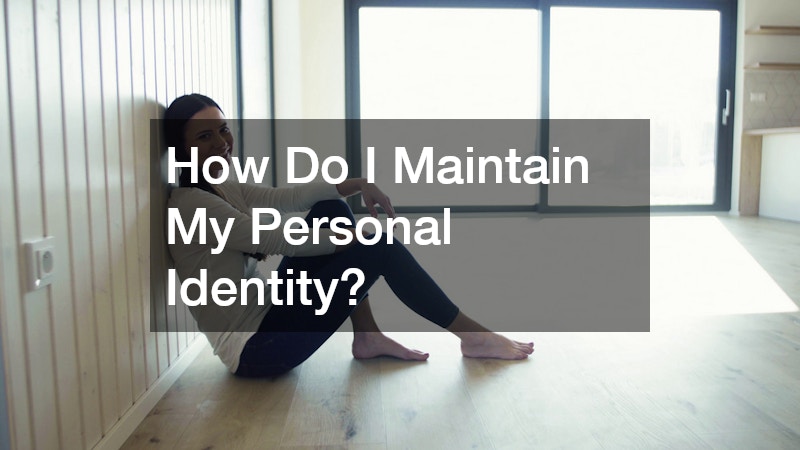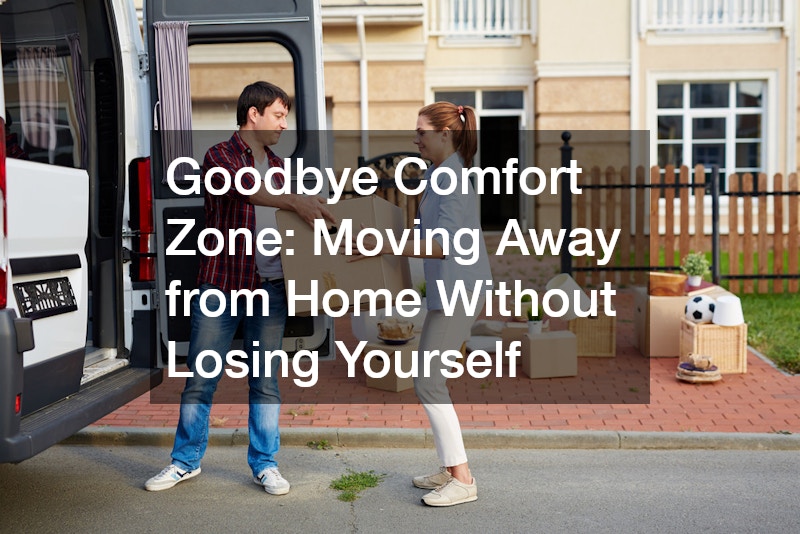Moving away from home is a transformative experience that brings both excitement and challenges. For many, it represents a significant step toward independence, personal growth, and new opportunities. Whether moving for career advancement, education, or lifestyle changes, leaving the familiarity of family, local schools, and known routines can feel both thrilling and intimidating. The process of moving away from home is not just about packing boxes and hiring a moving company; it involves emotional, social, and practical adjustments. By embracing these changes thoughtfully, individuals can grow in confidence and resilience while staying true to their identity.
Why Should I Move Away from Home?

Exploring Personal Growth Opportunities
Moving away from home creates an environment ripe for personal growth. Without the comfort of familiar surroundings, individuals are challenged to develop problem-solving skills, adaptability, and self-awareness. Daily life decisions—from choosing a local mover for relocation to figuring out whether to visit a dental office in a new city—require independent thinking. Just like parents consider the difference between daycare and preschool when choosing the right environment for a child’s growth, moving away from home challenges you to find the right environment for your own development.
Gaining Independence and Responsibility
One of the most immediate benefits of moving away from home is gaining independence. Tasks that were once managed by parents, guardians, or caregivers, such as handling finances, cooking meals, or boarding pets when away, now fall on the individual. This responsibility extends to making informed choices about everyday life, like selecting a veterinarian for a new pet or deciding whether to explore fine dining options in the area.
Enhancing Career Prospects
Relocating can open doors to professional growth. Cities and regions vary in job opportunities, industries, and networking potential. By moving away from home, individuals can position themselves closer to employment hubs, internship possibilities, or specialized education.
Experiencing New Cultures and Environments
A move often exposes individuals to new cultures, traditions, and lifestyles. Experiencing local customs, language nuances, and community practices enriches personal understanding and broadens perspectives. Engaging with local events, trying regional cuisine, or exploring community spaces helps create a sense of belonging while encouraging open-mindedness.
Building New Relationships and Networks
Relocating provides the opportunity to expand one’s social circle beyond old friends and family. Building relationships with neighbors, coworkers, classmates, or community members strengthens social support systems. Networking can occur in a variety of settings, from casual meet-ups at local cafes to joining clubs or volunteering in community projects. By nurturing these connections, individuals create a network of support that makes adaptation smoother and enhances overall well-being.
How Do I Emotionally Prepare for the Move?
Understanding and Accepting Change
Accepting the inevitability of change is crucial when moving away from home. Emotional preparation includes acknowledging the feelings of loss, excitement, and uncertainty that accompany relocation. Rather than resisting these emotions, embracing them allows for a smoother transition. Recognizing that leaving home involves both challenges and opportunities helps maintain a balanced perspective.
Coping Mechanisms for Homesickness
Homesickness is a common experience when living away from familiar surroundings. Strategies such as keeping a journal, maintaining digital communication with family, or visiting familiar places in the new city can help ease feelings of longing. Even engaging in familiar routines, like visiting a local dentist or checking in with a trusted veterinarian for a pet, can provide comforting anchors.
Establishing a Support System
Building a reliable support system is vital. Friends, colleagues, neighbors, and local community groups offer emotional guidance and practical help. For those with pets, connecting with local doggy daycare facilities or boarding pets services can also provide peace of mind.
Setting Realistic Expectations
Realistic expectations reduce frustration during relocation. Adjusting to a new city takes time, and it’s normal to encounter setbacks, whether with local movers, rental arrangements, or finding a preferred dental office.
Practicing Mindfulness and Self-care
Prioritizing self-care ensures emotional stability during a move. Practices such as meditation, exercise, and mindful reflection support mental health. Creating routines, even in a new city, can help establish normalcy. Visiting local gyms, exploring parks via golf carts, or indulging in occasional fine dining experiences are practical ways to incorporate self-care into daily life while building comfort in unfamiliar surroundings.
What Are the Financial Considerations and Tips?

Budgeting for Relocation Expenses
Financial planning is a critical aspect of moving away from home. Expenses include hiring a moving company, purchasing household items, paying security deposits, and managing daily living costs. Creating a detailed budget helps track spending and prevent unnecessary debt. Considering both upfront costs and long-term expenses ensures a smoother transition.
Understanding Cost of Living Differences
Relocating often means adjusting to a different cost of living. Housing, utilities, transportation, and groceries may vary significantly from previous expenses. Researching local schools, entertainment options, and healthcare services helps anticipate these differences and plan accordingly. Understanding local pricing structures prevents financial surprises and aids in creating a sustainable lifestyle.
Saving and Financial Planning Strategies
Establishing savings before a move is essential. Individuals should allocate funds for emergency situations, unexpected costs, and initial living expenses. Utilizing financial tools, seeking advice from professionals, or consulting online resources can strengthen financial planning. For pet owners, budgeting for services like doggy daycare or routine veterinarian visits ensures ongoing care without financial strain.
Finding Affordable Housing Options
Identifying suitable housing involves balancing price with location, amenities, and safety. Exploring various neighborhoods, comparing lease agreements, and utilizing local movers can ease the relocation process. Being flexible and considering shared accommodations or temporary housing may offer cost-effective solutions while settling into a new city.
How Can I Stay Connected with Family and Friends?
Using Technology to Bridge the Distance
Technology is an invaluable tool for maintaining connections. Video calls, instant messaging, and social media platforms help bridge the distance between home and a new city. Sharing experiences, such as trips to fine dining restaurants or weekend adventures, helps family and friends remain involved in life after moving away from home.
Scheduling Regular Catch-up Sessions
Consistency strengthens relationships. Setting weekly or monthly catch-up sessions ensures that loved ones remain part of life despite geographic separation. Even scheduling small interactions, like sharing photos from a day out or updates on local events, reinforces bonds and alleviates feelings of isolation.
Creating Traditions that Transcend Distance
Maintaining family traditions provides emotional continuity. Celebrating birthdays, holidays, or personal milestones virtually can reduce the impact of relocation. Traditions become adaptable rituals, whether attending virtual dinners, sharing local delicacies, or participating in events from afar.
Navigating Time Zone Challenges
Time zones can complicate communication. Establishing flexible routines and clear expectations ensures meaningful interactions without stress. Awareness of differences allows for planning phone calls, virtual gatherings, or even coordinating trips to see family and friends, keeping relationships strong.
How Do I Adapt to a New Environment?
Understanding Local Customs and Traditions
Adapting to a new city requires learning and respecting local customs. Observing social norms, cultural events, and community practices helps foster a sense of belonging. Engaging with local schools, neighborhood programs, or community gatherings provides insight into the unique rhythm of life in the new area.
Learning the Language and Dialect
Language skills enhance communication and integration. Even minor efforts, such as learning regional phrases or local etiquette, improve interactions and demonstrate respect for the community. This can be especially valuable in professional contexts or when navigating services like dental offices or fine dining establishments.
Finding Community and Belonging
Community involvement combats isolation. Joining local clubs, volunteering, or attending social events builds connections and creates a sense of home. Interactions with neighbors, classmates, or pet care communities like doggy daycare also foster supportive networks.
Staying Open-minded and Flexible
Flexibility is key to thriving in new surroundings. Approaching challenges with curiosity rather than resistance makes adaptation easier. Adjusting routines, trying new foods, or using unconventional modes of transport, such as golf carts in certain neighborhoods, can enrich the relocation experience.
Engaging in Local Events and Activities
Participation in local events encourages integration and exploration. Attending cultural festivals, sports activities, or professional gatherings provides exposure to new ideas, people, and experiences. Such involvement strengthens community ties and enhances personal growth.
What Should I Consider When Finding a New Place to Live?

Determining Location and Accessibility
Location affects daily convenience, lifestyle, and overall satisfaction. Proximity to work, local schools, healthcare providers, and leisure activities should guide decisions. Easy access to transportation and neighborhood safety is also essential when evaluating potential residences.
Assessing Safety and Security
Safety is a top priority when selecting housing. Researching crime rates, speaking with neighbors, and reviewing community resources ensures peace of mind. A secure environment supports mental well-being and fosters confidence when exploring a new city.
Evaluating Amenities and Resources
Amenities such as grocery stores, recreational facilities, and medical services influence quality of life. Access to dental offices, veterinarians, or even fine dining establishments adds convenience and enhances overall satisfaction in a new home.
Understanding Lease Terms and Conditions
Careful review of lease agreements prevents future conflicts. Understanding responsibilities, restrictions, and renewal procedures ensures transparency. Knowledge of regulations around pets or property modifications can also guide decisions.
How Can I Make New Friends After Moving Away?
Joining Clubs and Interest Groups
Participation in clubs, sports teams, or hobby groups provides structured opportunities for friendship. Engaging in shared interests fosters natural connections and encourages consistent social interaction.
Utilizing Social Media and Apps
Online platforms facilitate meeting new people. Local community groups, hobby-specific forums, and event apps create opportunities to build meaningful connections. These tools can bridge initial social gaps in unfamiliar settings.
Volunteering and Community Involvement
Volunteering encourages contribution to the local community while promoting social engagement. Activities ranging from pet care programs to neighborhood clean-ups create common ground for forming relationships.
Initiating Conversations and Networking
Proactively reaching out to neighbors, coworkers, or classmates builds rapport. Casual interactions at coffee shops, local schools, or doggy daycare centers can evolve into lasting friendships. Consistency and approachability are key.
Being Patient and Persistent in Building Friendships
Friendship development takes time. Patience and continued effort ensure genuine connections. Celebrating small milestones, sharing meals at fine dining establishments, or participating in group activities reinforces bonds over time.
How Do I Maintain My Personal Identity?

Balancing Adaptation with Authenticity
While embracing change is necessary, preserving core values ensures continuity. Balancing integration with self-expression allows individuals to thrive without losing authenticity.
Reflecting on Personal Values and Beliefs
Regular self-reflection supports personal growth. Evaluating beliefs, ethics, and priorities maintains alignment between identity and actions. This practice is especially valuable when navigating new cultural or social environments.
Engaging in Activities that Reflect Your Interests
Continuing hobbies and interests fosters individuality. Pursuing passions such as cooking, sports, or creative projects provides a sense of purpose and satisfaction. Attending local workshops or classes reinforces personal identity while facilitating social connections.
Setting Personal Goals and Objectives
Goal-setting promotes growth and self-direction. Establishing short- and long-term objectives, whether related to career, health, or social development, encourages accountability and fosters motivation in a new city.
Building a Personal Space that Reflects You
Creating a home environment that reflects personality enhances comfort and emotional well-being. Personal touches, such as decorating with meaningful items or arranging spaces for hobbies, reinforce identity in an unfamiliar setting.
What Are Some Challenges of Moving Away from Home?
Dealing with Loneliness and Isolation
Loneliness is a common challenge. Building support networks, maintaining communication with family, and engaging in community activities mitigate isolation. Awareness of mental health resources further supports adjustment.
Adjusting to Different Lifestyles
New cities often bring different routines, values, and social expectations. Flexibility and openness allow for smoother transitions while respecting one’s personal standards.
Managing Financial and Career Pressures
Relocation can intensify financial and career stress. Effective planning, budgeting, and networking reduce pressure. Utilizing services like local movers or exploring nearby employment opportunities helps ease the burden.
Balancing Independence with Responsibility
Independence requires discipline. Balancing freedom with accountability, whether managing bills, pets, or household chores, ensures stability and personal growth.
Navigating Cultural and Language Barriers
Cultural differences and language barriers may pose challenges. Learning local norms, practicing communication, and participating in community events encourage integration and ease adaptation.
How Can I Thrive in My New Surroundings?
Setting Up a Daily Routine and Structure
A consistent routine fosters stability and productivity. Incorporating work, leisure, self-care, and social interaction ensures a balanced lifestyle. Familiar routines, even when adapted to a new environment, promote emotional security.
Embracing New Opportunities and Growth
Thriving requires openness to new experiences. Trying local cuisine, attending networking events, or exploring recreational options, such as golf carts for local adventures, enriches life and fosters confidence.
Maintaining a Positive and Resilient Mindset
Optimism and resilience facilitate adaptation. Viewing challenges as growth opportunities reduces stress and encourages persistence. Celebrating small wins, such as successful social interactions or mastering new routines, reinforces positivity.
Celebrating Achievements and Milestones
Recognizing progress boosts morale. Celebrating milestones, whether professional accomplishments, personal growth, or successful navigation of moving logistics like hiring a moving company, encourages continued motivation and satisfaction.
Moving away from home is an intricate journey filled with opportunities and obstacles. It requires balancing emotional resilience, social adaptation, financial planning, and personal growth. By embracing change while maintaining core values, individuals can thrive in new environments, build meaningful relationships, and pursue personal goals with confidence. Every challenge—whether navigating local schools, visiting a veterinarian, or exploring fine dining—becomes a stepping stone toward independence and self-discovery. Ultimately, moving away from home is not just a physical relocation but a transformative experience that strengthens identity, cultivates maturity, and opens doors to a life rich with possibilities.


